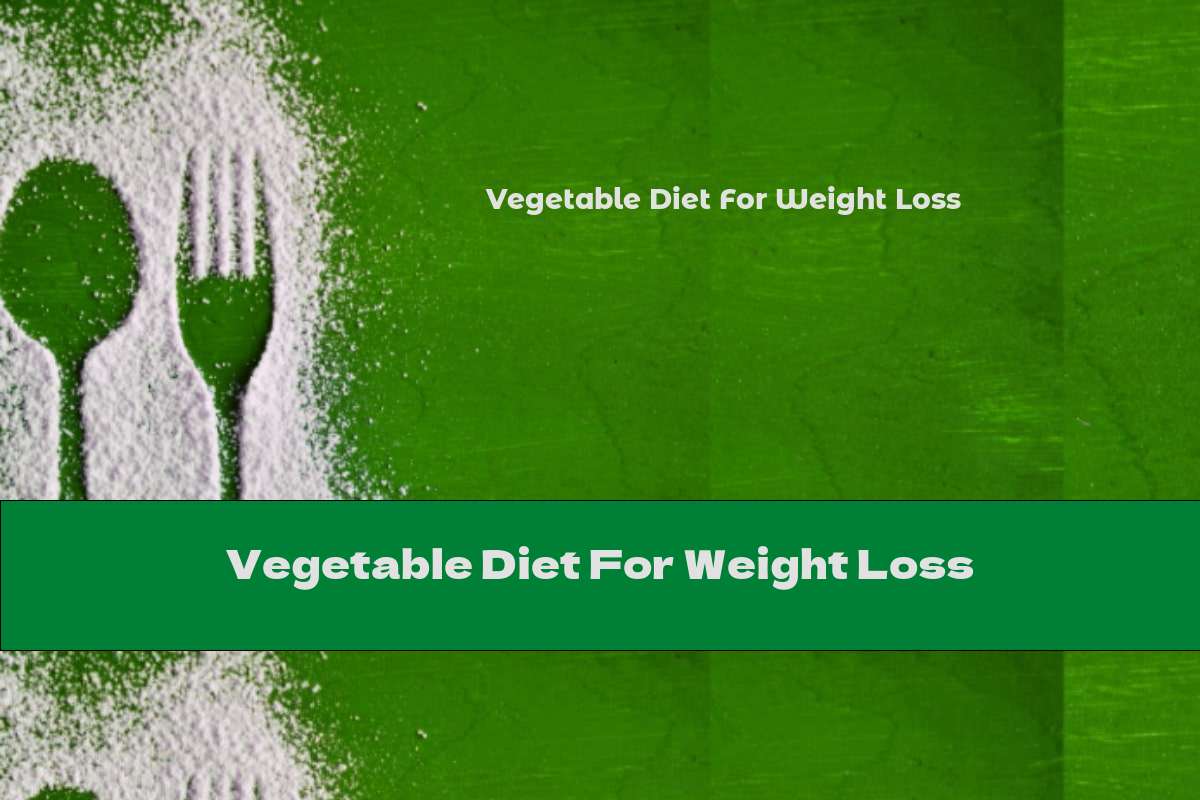Vegetable Diet For Weight Loss
 Author: Alexander Bruni
Time for reading: ~3
minutes
Last Updated:
February 21, 2026
Author: Alexander Bruni
Time for reading: ~3
minutes
Last Updated:
February 21, 2026

A vegetable diet for weight loss will not only allow you to lose excess weight, but also radically improve your body.
A vegetable diet for weight loss will not only allow you to lose excess weight, but also radically improve your body.
A vegetable diet for weight loss is one of the most pleasant and useful. Nutritionists almost always advise their patients to increase the proportion of raw vegetables in their diet. In this way, you can reduce the calorie content of food, as well as enrich your body with key vitamins and trace elements. Regular consumption of vegetables helps to cope with such diseases and conditions as obesity, atherosclerosis, tumor diseases and many others.
What are the advantages of a vegetable dietUnlike other diets, the vegetable diet is not stressful for the body. When switching to a vegetable diet, you do not limit yourself to key nutrients and biologically active substances. Vegetables are a source of vitamins and minerals, as well as fiber, a component necessary for good digestion.
Another advantage of a vegetable diet is its availability. Most vegetables (especially those grown in our country) are sold at an affordable price, and you will be able to provide yourself with a varied menu without any problems.
What vegetables are best suited for a vegetable diet? Nutritionists strongly recommend giving preference to those vegetables that are grown in your area of residence. The enzymatic system of our digestive system copes best with vegetables and fruits that grow on our territory.
For weight loss and health, you can use almost all the vegetables you know: zucchini, cabbage, cucumbers, tomatoes, green beans, pumpkin, onion, lettuce, radish, turnip, carrot, beet and others. It all depends on your preferences. At the same time, remember that food should be as diverse as possible.
For cooking, try to use as fresh vegetables as possible. It's great if you have a summer cottage where you can pick fruit straight from the garden. In the markets, buy only those vegetables that were grown in natural conditions, without the use of chemicals.
Do not forget to count caloriesDespite the low calorie content of vegetables, do not forget to count calories. Some of the vegetables can be very high in calories, especially if they are fried in oil. The calorie content of sunflower and olive oils is more than 900 kcal per 100 g! Therefore, frying increases the calorie content several times. Be sure to consider this point.
Zucchini, white cabbage, cucumbers, pumpkin, tomatoes, lettuce, sweet pepper are considered the most low-calorie vegetables.
How to cook vegetablesMost of us think that vegetable dishes are not tasty. No salads or vegetable stew can be compared to a well-fried piece of fatty meat. In fact, the problem is our eating habits. Indeed, the first time it will be difficult to be satisfied with vegetable dishes. Taste buds that are used to fatty and refined food have a very difficult time transitioning to vegetables. However, the gradual replacement of semi-finished products and sweets with vegetables will gradually return the receptors to their original state.
Keep in mind that the vegetable diet does not involve any strict prohibitions or restrictions on the way of cooking. You can eat both raw vegetables and stewed, boiled and even fried (a little!) dishes. At the same time, preference should be given to different salads. It is best to dress salads with a mixture of olive oil and lemon juice. It is better to avoid mayonnaise and ready-made sauces, as they are high in calories.
To make a more diverse menu, you need to alternate the methods of preparing dishes. For example, you can eat a light salad for breakfast; for lunch you can eat baked vegetables with pickles; you can have dinner with vegetable soup or a salad of boiled and pickled vegetables.
Related Articles
- The Nutritional Value of Avocado Calories: Benefits, Diet Tips, and Recipes
- The Ultimate Guide to Diet ��� 7 for Improved Nutrition
- The Nutritional Value of Potato Chips: How They Fit Into a Healthy Diet
- Nutritional Benefits of Chowmein: A Healthy Addition to Your Diet
- The Ultimate Guide to a Healthy Diet: Benefits, Components, and Tips